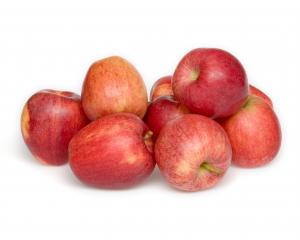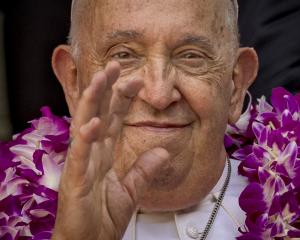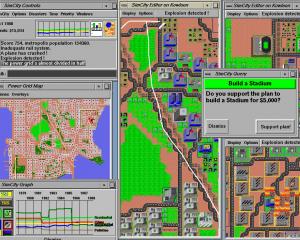The Dunedin City Council's intention in producing a formal events strategy is to "enable it to support the growth, development and management of festivals and events in our city over the next 10 years".
The decision to develop a strategy arose out of three issues - the need to have an overall vision, the need for a planned programme that spanned the entire year, and the need for fairly and objectively assessed funding criteria.
A formal approach to events is long overdue.
For decades, many Dunedin events have been run by enthusiastic amateur groups with little or no financial support from the council or the businesses that benefit from their presence.
The strategy considers four categories - international, national, regional (Otago and Southland) and local events - and gives examples of each.
An international event "could be expected to attract at least 15,000 visitor nights and/or will generate $5 million or more through direct visitor expenditure"; a national event would bring in 5000 to 20,000 visitor nights and generate $3 million.
The report gives no indication of what financial spinoff a regional event would be likely to bring.
The examples given for each category are sometimes surprising: Dunedin Public Art Gallery's 2003 exhibition, Pre-Raphaelite Dream, is defined as international; the Masters Games, which always has a trickle of international competitors, is national; while the Cadbury Chocolate Carnival and the Dunedin Rhododendron Festival are regional.
In the 2008-09 year, the DCC is putting $1.415 million into funding "for specific events identified in the annual plan".
With other council funding, the budgeted spending is $12.13 per resident.
Auckland and Christchurch spend about the same as Dunedin, the report says.
Maybe, but Christchurch city, with a population of 370,000, is pulling in three times as much money as Dunedin, and Auckland (1.4 million) more than a dozen times as much from similar per-resident spending.
However, as it is claimed in the report that "every dollar invested by the DCC in national and international events will contribute to an overall return of at least $40 in direct visitor expenditure", it is more important to focus on that, rather than waste time looking at other councils' spending.
The report pushes for the council to "prioritise funding for national and international festivals and events".
This is scarcely realistic, given that the global financial crisis is taking its toll on air travel and Air New Zealand's savaging of Dunedin's transtasman link is hurting the city.
Indications are that international travel is a very long way from recovery and the report's proposed underwriting of international events is likely to be money down the drain.
Anecdotal evidence suggests New Zealanders are planning breaks closer to home.
Rather than by dreaming of vast returns from falling international tourism, Dunedin could cash in by pushing the likes of the Cadbury Chocolate Carnival and Rhododendron Festival to those from other parts of New Zealand who want a less expensive holiday.
But, for this to happen, some events would have to lift their game.
The Rhododendron Festival is a prime example.
The report's proposal that the DCC not fund "events that are unable to deliver a fresh and changing programme" could be aimed at the Rhododendron Festival.
The past three rhododendron festivals have been acutely disappointing and, commendable though it is to promote sustainability issues and native plants, these are not central to a rhododendron festival any more than cooking classes or edible seaweeds are.
Rhododendrons have played little part in the past few festivals and Rhododendron Day, which used to kick-start the festival, now sits in isolation.
The impression is of a series of disparate groups unwilling to co-operate while much of the programme is simply, as one local gardener put it, "same as, same as".
If the Dunedin Rhododendron Festival is to resume its role of a Dunedin drawcard - and to keep DCC funding - a co-ordinated approach and innovative ideas are essential.
The report's recommendation that the DCC works with organisations, event organisers and Tourism Dunedin, and plan a calendar that avoids clashes or "clumps" of events is commendable, as is post-event assessment and the requirement that groups receiving DCC funding give full reports.
One area that the report fails to address is piggybacking Dunedin events on to those in adjacent regions.
More than 75,000 people attended the Ellerslie International Flower Show in Christchurch at the beginning of March.
As Christchurch Mayor Bob Parker wants the event to become one of the world's top five flower shows, Dunedin could offer, for example, post-Ellerslie garden visits and general tours.
Working with Central Otago and Southland to promote spring garden visits throughout the region could enhance the visitor numbers to the Rhododendron Festival, while linking other events to ensure visitors could move from something in Dunedin to, say, one in Alexandra, makes sense for everyone.
The Dunedin festivals and events strategy has much to commend it, particularly in promoting co-operation, planning a calendar to bring visitors to the city throughout the year and requiring accountability from groups that receive DCC funding.
But a 10-year plan seems too lengthy a timespan and planning in shorter blocks, say three or five years, would better enable the city to respond to the swings of local and world tourism.
• Gillian Vine is a Dunedin journalist and gardening writer.











